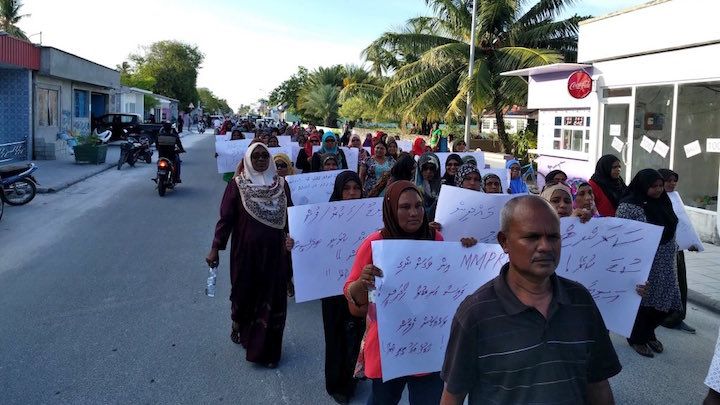Government promises to reduce food prices amid protests
The government has promised to reduce the cost of food staples after a backlash from within the ruling party and protests by the opposition over an abrupt hike in food and electricity prices

03 Oct 2016, 09:00
The government has promised to reduce the cost of food staples after a backlash from within the ruling party and protests by the opposition over an abrupt hike in food and electricity prices.
Prices for food staples doubled overnight in Malé on Saturday after the government cut subsidies for rice, flour and sugar. Prices are even higher in the Maldives’ far-flung atolls such as the southern Addu City where a kilo of all three staples costs MVR2 (US$0.13) more than in the capital.
Ahmed Shaheer, the managing director of the State Trading Organisation, which imports the majority of food staples, told reporters that the state-owned wholesaler is looking at how it can cut costs to bring down prices.
“We are discussing with the authorities to explore ways to reduce the prices at which STO imports staples. We are looking into whether we can reduce the cost of logistics, or cost of overheads or expanding storage. God Willing, we will try to reduce the cost of future shipments,” he said.
Become a member
Get full access to our archive and personalise your experience.
Already a member?
Discussion
No comments yet. Be the first to share your thoughts!
No comments yet. Be the first to join the conversation!
Join the Conversation
Sign in to share your thoughts under an alias and take part in the discussion. Independent journalism thrives on open, respectful debate — your voice matters.




